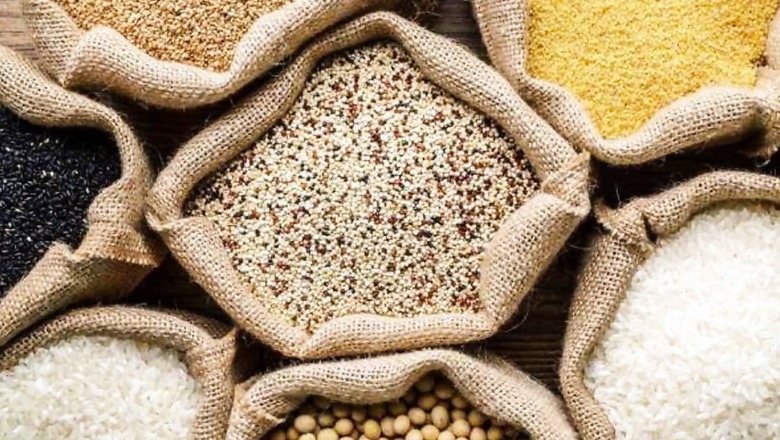
views
The wholesale price-based inflation stood at (-)0.58 pc in July, remaining in the negative zone for the fourth straight month even as vegetables and other food items turned costlier.
WPI inflation in June was (-) 1.81 per cent, while for the month of May and April it was (-) 3.37 per cent and (-) 1.57 per cent respectively.
"The annual rate of inflation, based on monthly WPI (Wholesale Price Index), stood at (- 0.58 per cent) (provisional) for the month of July, 2020 as compared to 1.17 per cent during the corresponding month of the previous year," the commerce and industry ministry said in a statement.
Inflation in food articles was at a four-month high level of 4.08 per cent in July, mainly due to sharp rise in vegetable prices. Inflation in vegetables stood at 8.20 per cent, against (-) 9.21 per cent in June.
Pulses saw inflation of 10.24 per cent, while for potato it was 69.07 per cent in July. Protein rich items like egg, meat and fish saw hardening of prices with inflation at 5.27 per cent.
However, onion prices softened and inflation fell 25.56 per cent, while in fruits it was (-) 3.03 per cent.
Inflation in fuel and power basket fell 9.84 per cent in July, compared to 13.60 per cent drop in the previous month.
Manufactured products, however, witnessed inflation of 0.51 per cent in July, against 0.08 per cent in June.
ICRA Principal Economist Aditi Nayar said the considerable narrowing in the WPI disinflation in July 2020 relative to the previous month, was along expected lines, with a correction in the index levels for crude oil and mineral oils, further narrowing of the core disinflation and a rise in food inflation.
"The surge in tomato prices and moderate rise in potato prices pushed up the vegetable inflation in July 2020, contributing to the uptick in the inflation for primary food articles to a four-month high.
"While the inflation for pulses remained steady in double-digits, cereal inflation eased appreciably, to a mild 0.75 per cent in July 2020, offering a modicum of relief," Nayar said.
The RBI in its policy review last week kept interest rates unchanged and said it sees an upside risk to inflation. The apex bank projected retail inflation to moderate in October-March period.
Retail inflation was 6.93 per cent in July, against 6.23 per cent in June.
"Overall, we expect WPI to print in a disinflation of 0.8-1.0 per cent in FY 2021, driven by the correction in prices of various commodities other than gold. Today's WPI print does not materially alter our view that an extended pause is likely from the Monetary Policy Committee," Nayar said.



















Comments
0 comment